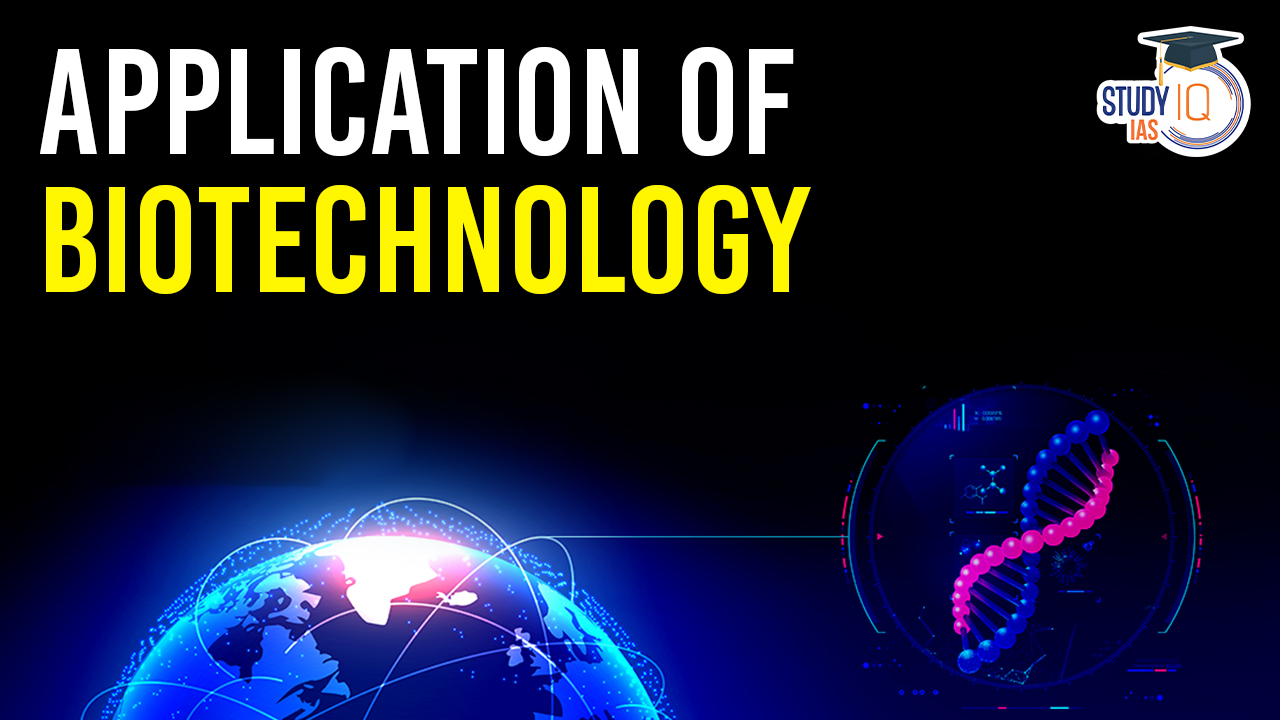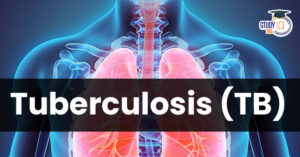Table of Contents
Biotechnology is a transformative field that harnesses biological systems, living organisms, or their components to create diverse products and processes. Traditionally, practices like brewing and bread baking exemplify biotechnology by employing living organisms, such as yeast, to achieve desired outcomes. While these conventional methods use organisms in their natural or selectively bred forms, modern biotechnology involves sophisticated modifications of biological systems or organisms. The advent of genetic engineering in the 1970s propelled rapid advancements in biotechnology, enabling precise alterations to an organism’s genetic material, particularly its DNA.
We’re now on WhatsApp. Click to Join
Application of Biotechnology
Biotechnology extends its influence across various sectors, including medicine, agriculture, industry, and environmental management. This comprehensive field encompasses industrial-scale production of biopharmaceuticals and biologicals, employing genetically modified microbes, fungi, plants, and animals. The applications of biotechnology are far-reaching, spanning therapeutics, diagnostics, genetically modified crops, processed foods, bioremediation, waste treatment, and energy production.
| Application of Biotechnology | Examples |
| Medicine and Healthcare | Pharmaceuticals: Recombinant DNA technology used for producing therapeutic proteins, hormones, vaccines. Monoclonal antibodies in cancer treatment.
Gene Therapy: CRISPR-Cas9 for precise gene editing and therapy. Diagnostics: PCR, DNA sequencing for early disease detection. |
| Agriculture | Genetically Modified Organisms (GMOs): Creation of crops with improved traits like pest resistance and increased yield.
Crop Improvement: Tissue culture, marker-assisted selection for developing new varieties with desirable characteristics. |
| Industrial Applications | Enzyme Production: Industrial use of biotechnology for producing enzymes in textile, detergents, and food processing.
Biofuels: Engineering microorganisms for sustainable production of biofuels like ethanol and biodiesel. Bioremediation: Microorganisms for eco-friendly cleanup of pollutants. |
| Environmental Management | Waste Treatment: Biotechnology employed in treating industrial and municipal waste, utilizing microorganisms for pollutant breakdown.
Biosensors: Development of biosensors for detecting pollutants in air, water, and soil for environmental monitoring. |
| Biopharmaceuticals | Recombinant Proteins: Using biotechnology to produce therapeutic proteins and peptides using genetically engineered microorganisms or cell cultures.
Stem Cell Therapy: Application of biotechnology in stem cell research for potential disease treatments. |
| Research and Development | Genomics and Proteomics: Utilization of biotechnology tools like DNA sequencing and mass spectrometry for advancing genomics and proteomics research, enhancing understanding of genetic diseases and protein functions. |
| CRISPR Technology | Genome Editing: CRISPR-Cas9 technology applied for precise modification of DNA sequences, promising advancements in treating genetic disorders.
Research Areas: Investigated in various research areas, including single-gene disorders like cystic fibrosis and sickle cell disease. |
| Transgenic Animals | Genetic Manipulation: Creation of transgenic animals with manipulated DNA expressing foreign genes.
Research Models: Used for studying gene regulation, modeling human diseases, producing biological products, and testing vaccine and chemical safety. |
Application of Biotechnology in Medicine
- Pharmaceuticals: Biotechnology plays a crucial role in the development of drugs and therapies. Recombinant DNA technology is used to produce therapeutic proteins, hormones, and vaccines. Monoclonal antibodies, which are widely used in cancer treatment and autoimmune diseases, are also a product of biotechnology.
- Gene Therapy: Biotechnology offers tools for gene editing and gene therapy. CRISPR-Cas9 technology, for example, enables precise modification of genes, holding promise for treating genetic disorders.
- Diagnostics: Biotechnology has revolutionized diagnostic tools, enabling the detection of diseases at earlier stages. Techniques like PCR (Polymerase Chain Reaction) and DNA sequencing have become indispensable in clinical diagnostics.
Application of Biotechnology in Agriculture
- Genetically Modified Organisms (GMOs): Biotechnology is extensively used in creating genetically modified crops with improved traits such as resistance to pests, diseases, and harsh environmental conditions. This enhances crop yield, reduces the need for chemical inputs, and contributes to food security.
- Crop Improvement: Techniques like tissue culture and marker-assisted selection are employed for the development of new crop varieties with desirable characteristics, including improved nutritional content and increased tolerance to abiotic stresses.
Application of Biotechnology in Industries
- Enzyme Production: Biotechnology is used in the industrial production of enzymes for various purposes, such as the textile industry, detergents, and food processing.
- Biofuels: Microorganisms are engineered to produce biofuels like ethanol and biodiesel, providing sustainable alternatives to traditional fossil fuels.
- Bioremediation: Microorganisms are harnessed to clean up pollutants in soil and water. Bioremediation is an eco-friendly approach to remediate contaminated environments.
Application of Biotechnology in Environmental Management
- Waste Treatment: Biotechnology is employed in the treatment of industrial and municipal waste. Microorganisms can break down pollutants, contributing to more sustainable waste management practices.
- Biosensors: Biotechnology has led to the development of biosensors that can detect pollutants and contaminants in air, water, and soil, aiding in environmental monitoring.
Application of Biotechnology in Biopharmaceuticals
- Recombinant Proteins: Biotechnology enables the production of therapeutic proteins and peptides using genetically engineered microorganisms or cell cultures.
- Stem Cell Therapy: Biotechnology plays a role in stem cell research, offering potential treatments for various diseases and injuries.
Application of Biotechnology in Research and Development
- Genomics and Proteomics: Biotechnology revolutionizes Research and Development (R&D) across diverse domains. In genomics and proteomics, tools like DNA sequencing unravel genetic complexities. Drug discovery benefits from recombinant DNA technology, expediting therapeutic advancements. Stem cell research explores regenerative potential. Industrial R&D optimizes bioprocessing for large-scale production. Vaccine development leverages biotechnological platforms for safer immunization.
- Biosensors and diagnostics, powered by biotechnology, enable precise disease detection. Enzyme engineering transforms industrial processes, while CRISPR technology facilitates precise genetic editing. Biotechnology’s multidimensional role in R&D underscores its pivotal contribution to scientific discovery, medical breakthroughs, and technological innovation.
Application of Biotechnology in CRISPR Technology
The advent of CRISPR-Cas9 technology has provided a powerful tool for editing genomes. This technology, adapted from bacteria’s natural genome editing system, is extensively explored for modifying DNA sequences and gene functions. CRISPR is investigated in various research areas, including the study of single-gene disorders like cystic fibrosis and sickle cell disease.
Application of Biotechnology in Transgenic Animals
Biotechnology has facilitated the creation of transgenic animals, genetically manipulated to express foreign genes. These animals serve diverse purposes, such as studying gene regulation, modeling human diseases for research, producing biological products like human proteins, and testing the safety of vaccines and chemicals.
Biotechnology in India
In India, the Department of Biotechnology, under the Ministry of Science and Technology, plays a pivotal role in managing biotechnology programs. Objectives include research, infrastructure development, human resource generation, biotechnology popularization, industrial promotion, and biosafety implementation. The Genetic Engineering Appraisal Committee (GEAC), operating under the Ministry of Environment, Forest and Climate Change, evaluates activities involving hazardous microorganisms and recombinants.
Application of Biotechnology UPSC
Biotechnology, a transformative field, finds widespread application across diverse sectors. In medicine, it shapes pharmaceutical development through recombinant DNA technology and gene therapy. Agriculture benefits from genetically modified crops, enhancing yield and resilience. Industries employ biotechnology for enzyme production, biofuels, and waste treatment. Environmental management leverages bioremediation and biosensors. Biopharmaceuticals utilize genetically engineered microorganisms for therapeutic proteins. Research relies on biotechnological tools like genomics and CRISPR technology. Transgenic animals aid in genetic research and safety testing. This multifaceted influence underscores biotechnology’s pivotal role in advancing healthcare, agriculture, industry, and environmental sustainability.


 AI and its Regulation in India, Limitati...
AI and its Regulation in India, Limitati...
 Tuberculosis (TB), Symptoms, Causes and ...
Tuberculosis (TB), Symptoms, Causes and ...
 Silicon Photonics Enables Low-power AI A...
Silicon Photonics Enables Low-power AI A...





















